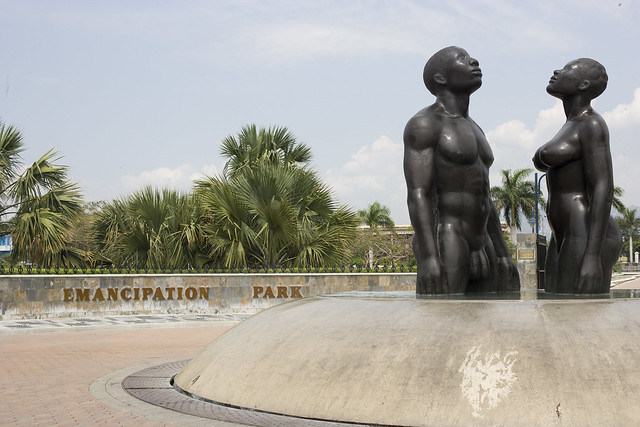African Descent
The international
community led by the United Nations observes the
International Day for the Remembrance of Victims of Slavery and the
Transatlantic Slave Trade on Monday, March 25. Undoubtedly,
the transatlantic slave trade was the largest forced migration in history and
is undeniably one of if not the most inhumane acts against any set of people. The widespread exodus of more than 15 million African
men, women and children from the motherland was conducted over 400
hundred years. For over four
centuries the development of Europe was intricately tied to the sweat, tears
and blood of our African ancestors. We must never forget that the greatest
forced movement of Africans was to the Americas to work as chattel slaves on
sugar plantations, rice and coffee plantations. Chattel slavery is a form of slavery in which human
beings are considered to be property and are bought and sold as such. The African Holocaust or Maafa involved numerous
European powers such as Spain, Britain, Denmark, and The Netherlands who were
all responsible for the trafficking of our ancestors. Additionally, the royal families across
Europe, as well as large international investment firms had invested heavily in
the transatlantic slave trade. It is never too late for them to be held accountable.
The legacy of this forced migration of our ancestors is still with us in the
large populations across the Americas of descendants of the enslaved
Africans. It bares thought that the
issue of reparation and reparatory justice must also be part of the discussion
going forward as we work to engage and to explore ways to make right the wrongs
of the past. In commemoration of the memory of the victims, the United Nations General
Assembly has called for the establishment of an outreach programme to mobilize
educational institutions, civil society, and other organizations to inculcate in
future generations, the causes, consequences and lessons of the transatlantic
slave trade and communicate the dangers of racism and prejudice. As the global community continues to observe the
United Nations International Decade for People of African Descent (2015-2024)
we are reminded that we all have a part to play as descendants of enslaved ancestors
in ensuring that we help to raise the awareness regarding one of the darkest chapters
of human history.
In the words of Sir Hilary Beckles, this is not about retribution and anger it’s about atonement; it’s about the building of bridges across lines of moral justice.
@WayneCamo

In the words of Sir Hilary Beckles, this is not about retribution and anger it’s about atonement; it’s about the building of bridges across lines of moral justice.
#RememberSlavery
#AfricanDescent
Wayne
Campbell is an educator and social commentator with an interest in development
policies as they affect culture and/or gender issues.
waykam@yahoo.com@WayneCamo



Comments
Post a Comment